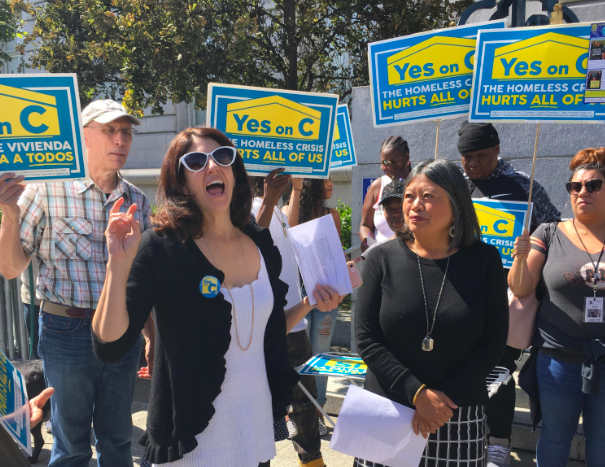Proposition C would have a huge impact on homelessness in San Francisco and cost the city so few jobs that there’s no credible impact on employment, a study by the city economist shows.
The study directly contradicts the arguments of the Chamber of Commerce and the city’s Office of Economic and Workforce Development, which are claiming that the tax increase on a small number of business will lead to job losses for the middle class.

City Economist Ted Egan looked at the data and concluded that the tax could cause a loss of no more than 875 jobs a year – a number so low considering that more than 450,000 San Franciscans are currently employed that it’s nothing more than a rounding error. That many jobs are created and lost every few weeks in the city, due to thousands of factors that have nothing to do with taxes.
The job losses in retail (152) are offset 2-1 by an increase in social service jobs (258) and government jobs (105). Again, those numbers are so low it’s hard to even assign them to this one tax issue.
So with this report, the Chamber’s argument that the measure will cost middle-class jobs is exposed as utter fallacy.
At the same time, the report says:
- The expected reduction in the number of homeless people in San Francisco can be expected to improve physical and social conditions on the city’s streets.
- Anecdotally, these “quality of life” issues have an impact on the perception of the city held by tourists, commuters, and residents.
- While these issues have not led to citywide increases in residential or hotel vacancy rates, both of which remain at or near all-time highs, it is reasonable to assume that an increase in perceived attractiveness of the city would lead to higher hotel rates, residential property values, and perhaps commercial activities in retail areas currently impacted by homelessness.
So despite what the Chamber says, Prop. C looks good for business.
The report also notes that most of the businesses that would pay the modest new tax are already benefitting from the Trump tax cuts.
While the tax savings to San Francisco businesses are difficult to estimate and apportion to the city, it is likely that the 14% income tax cut [from Trump] would outweigh the proposed 0.5% gross receipts tax increase for the majority of the 300-400 affected businesses.
More:
Additional positive factors, not quantified in this analysis, include an expected improvement in health outcomes, a reduction in acute service costs, and an attractiveness of the City, because of the likely decline in the homeless population. To the extent that these policy objectives are achieved, the economic impact could be better than we project.
We have heard these doomsday scenarios from the Chamber before, and they’ve never turned out to be true. “When we fought to increase the minimum wage, these same corporations threatened to leave town and said that job loss would ensue,” Conny Ford, vice president of community activities for the SF Labor Council said. “No such thing happened then, and no such thing will happen now. Instead, Prop C will create middle-income jobs and prevent homelessness for thousands of our working-class families.”





